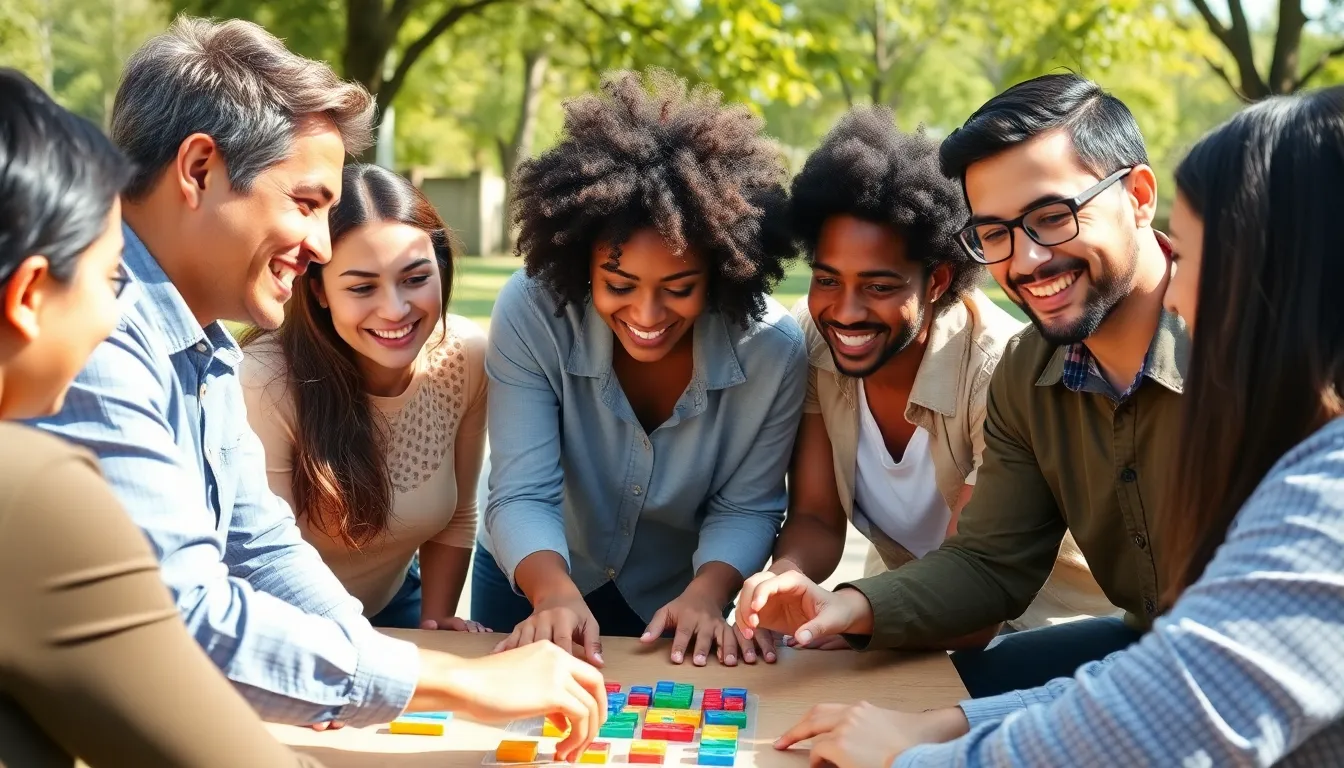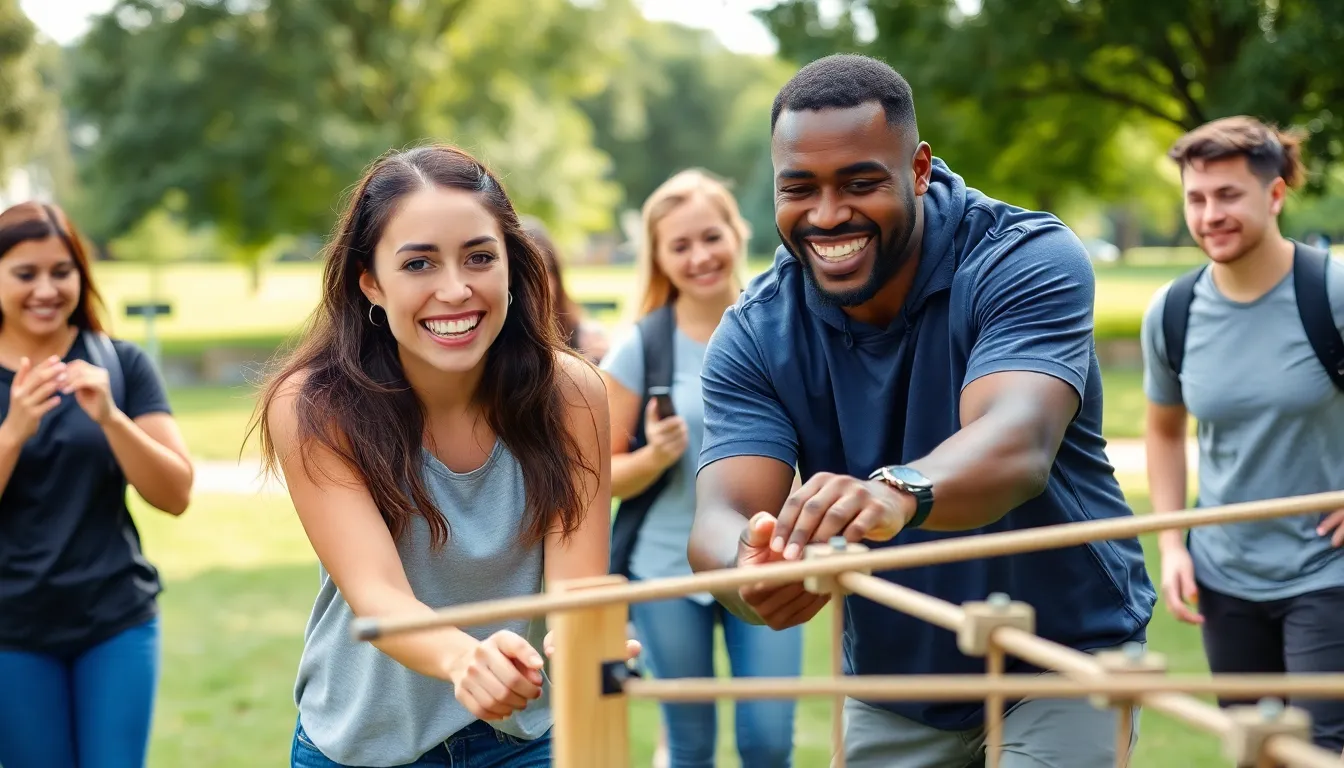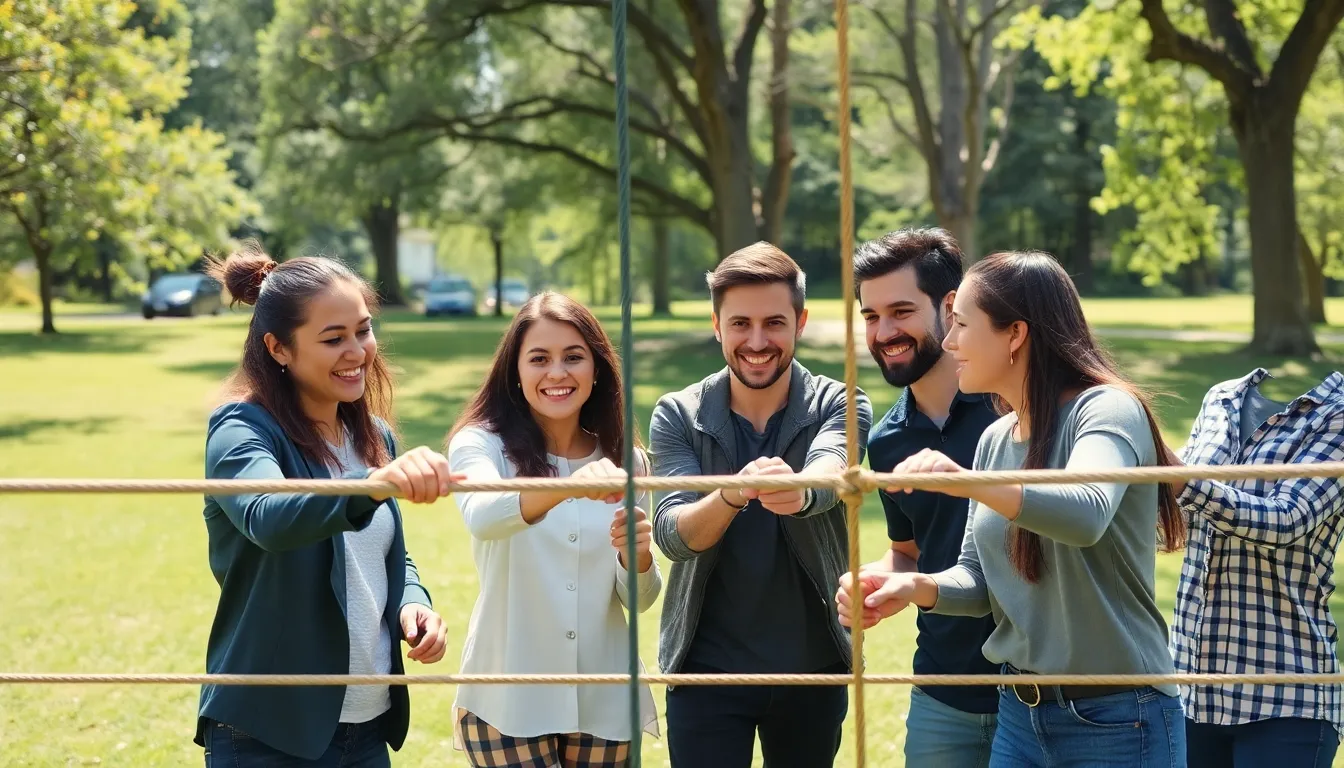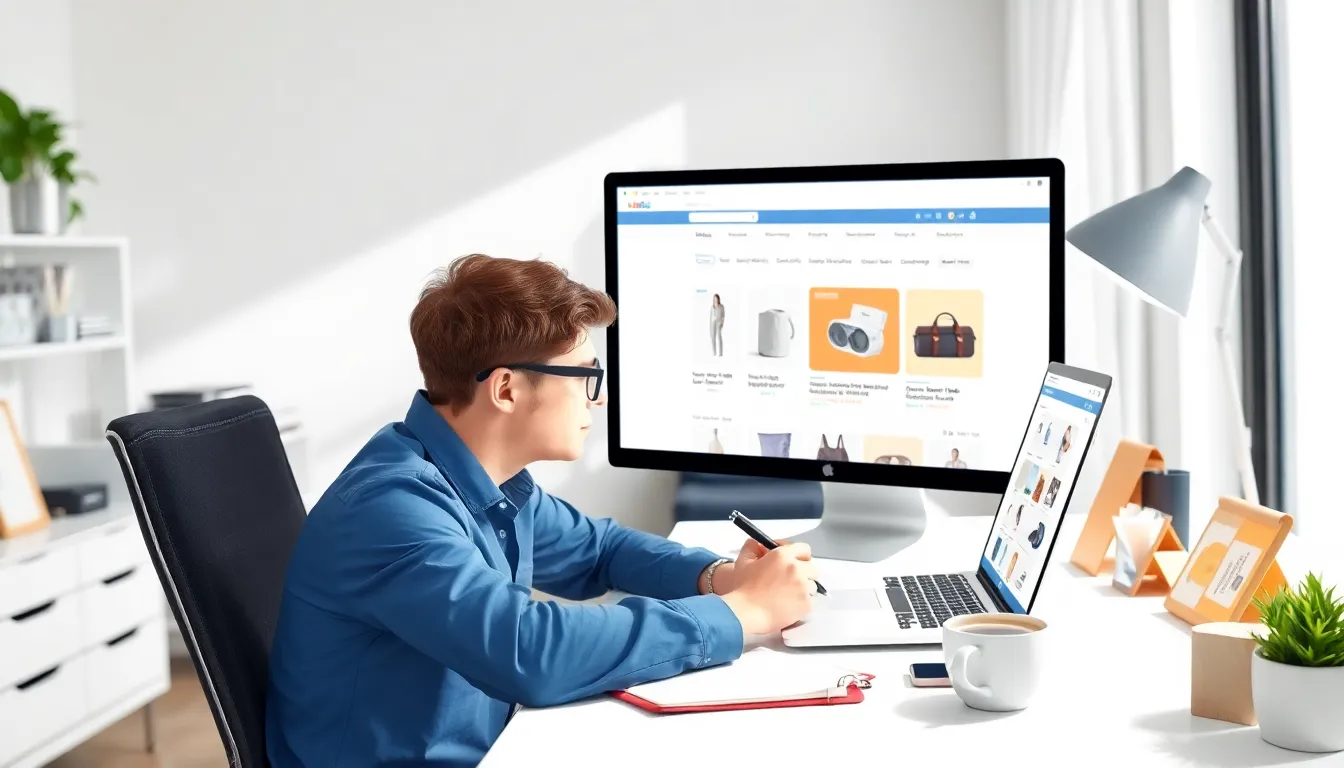In a world where emojis can speak louder than words, mastering the art of communication is more crucial than ever. Communication enhancement activities offer a playful yet powerful way to sharpen those skills. Whether it’s overcoming awkward silences at parties or ensuring that work presentations don’t put everyone to sleep, these activities turn mundane conversations into engaging exchanges.
Table of Contents
ToggleOverview of Communication Enhancement Activities
Communication enhancement activities serve as valuable tools for improving interpersonal skills. Engaging in these activities can lead to increased confidence and effectiveness in various social and professional interactions.
Importance of Effective Communication
Effective communication plays a crucial role in all aspects of life. It strengthens relationships and promotes collaboration among colleagues. Clarity in expression eliminates misunderstandings, ensuring that messages are accurately conveyed. Improved communication leads to greater team cohesion, resulting in enhanced productivity. Individuals proficient in communication possess a competitive advantage in the workforce, as employers prioritize excellent communicators.
Types of Communication Enhancement Activities
Numerous types of communication enhancement activities exist, catering to varying needs. Team-building exercises focus on collaboration and trust within groups. Public speaking workshops provide tools for individuals to present ideas clearly and confidently. Role-playing scenarios simulate real-life interactions, allowing participants to practice responses in a safe environment. In addition, active listening workshops enhance the ability to understand others. Games and activities aimed at improving non-verbal communication skills contribute to an overall effective communication strategy.
Benefits of Communication Enhancement Activities
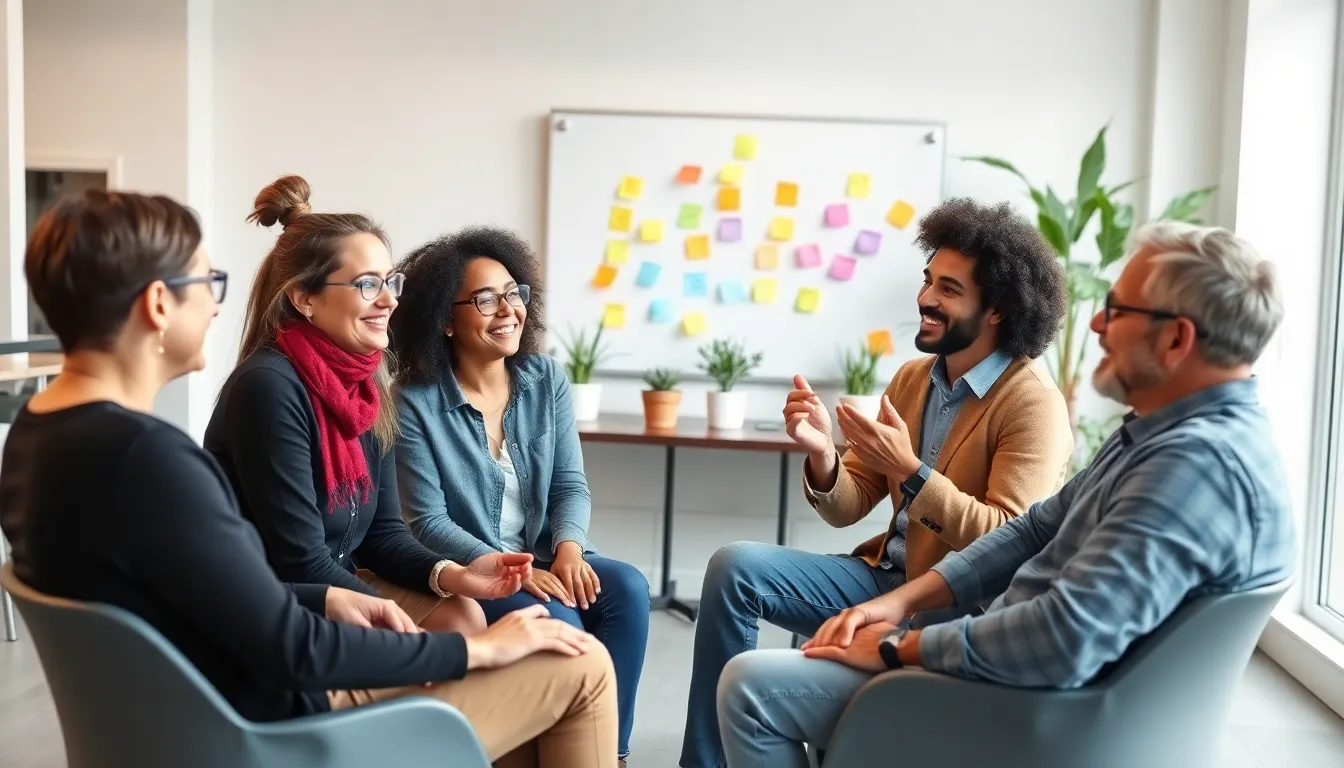
Communication enhancement activities provide several advantages that significantly impact both personal and professional environments. They foster stronger interactions and improve overall connection among individuals.
Improved Team Collaboration
Enhanced communication skills lead to better teamwork. Individuals who engage in communication activities understand each other’s strengths and weaknesses more clearly. This awareness fosters trust and cooperation among team members. Active listening workshops sharpen listening abilities, ensuring everyone feels valued in discussions. Additionally, team-building exercises cultivate a shared sense of purpose, resulting in higher productivity. Employers recognize that cohesive teams achieve objectives more efficiently, which leads to improved work dynamics.
Enhanced Personal Relationships
Personal relationships thrive when communication skills improve. Individuals who participate in these activities cultivate empathy and understanding. Role-playing scenarios allow participants to experience different perspectives, enriching their emotional intelligence. Strong listening skills create a safe environment for open dialogue, which strengthens bonds. Furthermore, effective non-verbal communication enhances connections between friends and family. Engaging in these activities helps individuals express themselves clearly and build healthier relationships.
Strategies for Implementing Communication Enhancement Activities
Implementing communication enhancement strategies involves practical steps that foster growth. Specific methods focus on workshops, training sessions, and interactive games.
Workshops and Training Sessions
Workshops and training sessions serve as structured environments for skill development. These sessions often cover topics like public speaking, active listening, and conflict resolution. Participants engage in hands-on activities to practice and refine their abilities. Facilitation by experienced trainers boosts confidence and encourages open dialogue. Regular feedback mechanisms enhance learning and retention among attendees. Organizations can tailor sessions to meet specific needs, ensuring relevance and effectiveness. Dedicated time commitment guarantees participants’ engagement, leading to long-term improvements in communication.
Interactive Games and Exercises
Interactive games and exercises promote engagement while enhancing communication skills. These activities often involve team scenarios where players collaborate to solve challenges. Non-verbal communication games focus on body language and gestures. Role-playing scenarios allow participants to navigate complex social situations in a safe environment. Teams often bond through friendly competition, which enhances relationships and trust. By integrating fun into learning, individuals become more open to the experiences. Scheduled regular sessions ensure ongoing development and reinforce skills acquired through workshops.
Measuring the Impact of Communication Enhancement Activities
Evaluating the effectiveness of communication enhancement activities relies on specific metrics. Measuring progress through defined indicators provides insight into improvement.
Key Performance Indicators
Key performance indicators (KPIs) serve as essential tools for tracking growth in communication skills. Participants can assess changes in team engagement, with improved interaction rates often indicating successful activities. Tracking qualitative feedback, like participant satisfaction, complements quantitative measures. Observing reductions in misunderstandings or conflicts shows the direct impact of enhanced skills. Regularly comparing pre- and post-activity assessments highlights areas where skills have notably increased. Notably, observing shifts in teamwork dynamics can directly correlate to the effectiveness of these activities.
Feedback and Continuous Improvement
Feedback mechanisms play a critical role in refining communication enhancement activities. Gathering participant insights following each session fosters greater learning. Incorporating feedback creates a loop for continuous improvement in program design. Observing participant performance during activities also informs adjustments. When organizations prioritize this feedback, they can customize future sessions to better address needs. Emphasizing ongoing training opportunities enhances skill retention and application. Thus, effective feedback can significantly enhance the overall impact of communication initiatives.
Effective communication is a cornerstone of successful interactions both personally and professionally. Engaging in communication enhancement activities not only sharpens skills but also fosters stronger relationships and teamwork. By embracing diverse methods such as workshops and team-building exercises, individuals can experience transformative growth.
The ongoing commitment to developing these skills leads to enhanced collaboration and productivity. As individuals become more adept at expressing themselves, they contribute to a more cohesive environment. Ultimately, prioritizing communication enhancement activities equips individuals with the tools necessary to thrive in an increasingly interconnected world.


